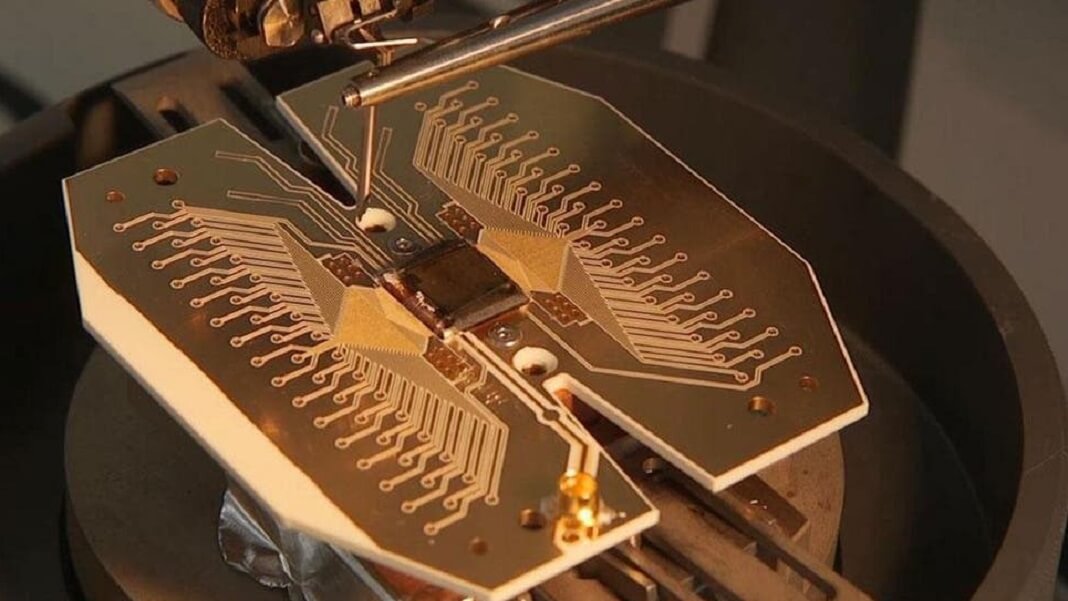
The potential of quantum computing is immense, but the distances over which entangled particles can reliably carry information remains a massive hurdle.

For decades, the pursuit of quantum computing has struggled with the need for extremely low temperatures, mere fractions of a degree above absolute zero.

Scientists achieve groundbreaking room-temperature quantum coherence for 100 nanoseconds, propelling molecular qubits closer to practical quantum computing.

Google researchers demonstrated they could reduce errors in calculations while increasing the number of physical quantum bits (qubits) in a 'logical qubit,' a building block of large-scale quantum computers.

A UK University team developed a system able to transport information from one chip to another with a reliability of 99.999993% at record speeds.

Another record has been broken on the way to fully operational and capable quantum computers: the complete control of a 6-qubit quantum processor in silicon. Researchers are calling it "a major stepping stone" for the technology.

Random errors incurred during computation are one of the biggest obstacles in quantum computing. Researchers have now demonstrated a technique that allows errors to be detected and corrected in real time.

The new chip has 127 "qubits", twice as many as the previous IBM processor. The company called its new Eagle processor "a key milestone on the path towards practical quantum computation".

A team of Dutch researchers reports realization of the first multi-node quantum network, connecting three quantum processors. Their findings mark an important milestone towards the future quantum internet.

Australian scientists and Microsoft Corporation invented a single chip that can generate control signals for thousands of qubits, when the world’s biggest quantum computers currently operate with just 50 or so qubits.

An ambitious plan to build a quantum computer the size of a soccer field could soon become a reality. A startup founded by the researchers behind the idea has just come out of stealth with $4.5 million in funding.

Quantum teleportation is an key way to transmit info in quantum computing. In a new step forward, researchers say it may be possible between electrons.

Most quantum computers being developed around the world will only work at fractions of a degree above absolute zero. Now the researchers developed a quantum processor unit cell that works at 1.5 Kelvin.

Researchers have made good on their claim to quantum supremacy. Using 53 entangled quantum bits ('qubits'), their Sycamore computer has taken on -- and solved -- a problem considered intractable for classical computers.

Scientists have discovered that terahertz light - light at trillions of cycles per second - can act as a control knob to accelerate supercurrents. That can help open up the quantum world of matter and energy at atomic and subatomic scales.